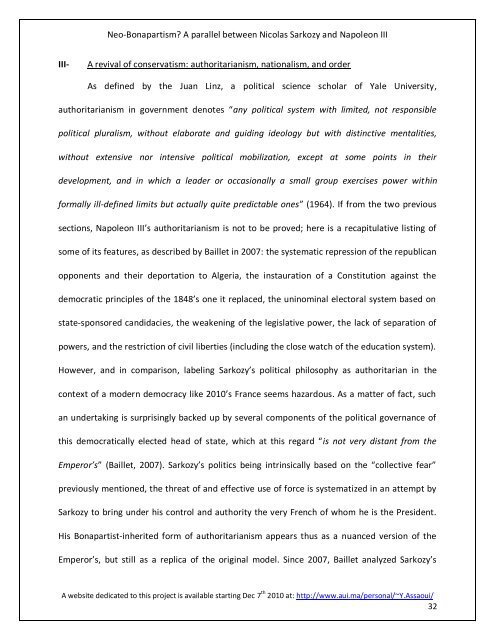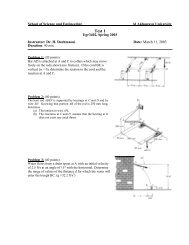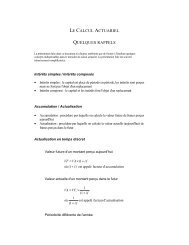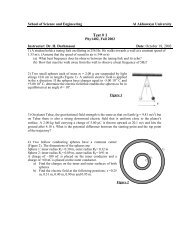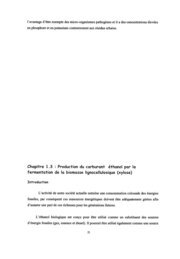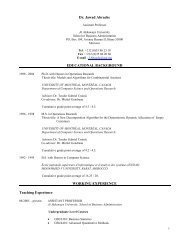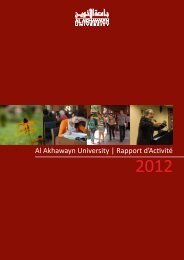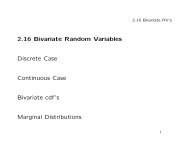Neo-Bonapartism? A parallel between Nicolas Sarkozy and ...
Neo-Bonapartism? A parallel between Nicolas Sarkozy and ...
Neo-Bonapartism? A parallel between Nicolas Sarkozy and ...
Create successful ePaper yourself
Turn your PDF publications into a flip-book with our unique Google optimized e-Paper software.
<strong>Neo</strong>-<strong>Bonapartism</strong>? A <strong>parallel</strong> <strong>between</strong> <strong>Nicolas</strong> <strong>Sarkozy</strong> <strong>and</strong> Napoleon III<br />
III- A revival of conservatism: authoritarianism, nationalism, <strong>and</strong> order<br />
As defined by the Juan Linz, a political science scholar of Yale University,<br />
authoritarianism in government denotes “any political system with limited, not responsible<br />
political pluralism, without elaborate <strong>and</strong> guiding ideology but with distinctive mentalities,<br />
without extensive nor intensive political mobilization, except at some points in their<br />
development, <strong>and</strong> in which a leader or occasionally a small group exercises power within<br />
formally ill-defined limits but actually quite predictable ones” (1964). If from the two previous<br />
sections, Napoleon III’s authoritarianism is not to be proved; here is a recapitulative listing of<br />
some of its features, as described by Baillet in 2007: the systematic repression of the republican<br />
opponents <strong>and</strong> their deportation to Algeria, the instauration of a Constitution against the<br />
democratic principles of the 1848’s one it replaced, the uninominal electoral system based on<br />
state-sponsored c<strong>and</strong>idacies, the weakening of the legislative power, the lack of separation of<br />
powers, <strong>and</strong> the restriction of civil liberties (including the close watch of the education system).<br />
However, <strong>and</strong> in comparison, labeling <strong>Sarkozy</strong>’s political philosophy as authoritarian in the<br />
context of a modern democracy like 2010’s France seems hazardous. As a matter of fact, such<br />
an undertaking is surprisingly backed up by several components of the political governance of<br />
this democratically elected head of state, which at this regard “is not very distant from the<br />
Emperor’s” (Baillet, 2007). <strong>Sarkozy</strong>’s politics being intrinsically based on the “collective fear”<br />
previously mentioned, the threat of <strong>and</strong> effective use of force is systematized in an attempt by<br />
<strong>Sarkozy</strong> to bring under his control <strong>and</strong> authority the very French of whom he is the President.<br />
His Bonapartist-inherited form of authoritarianism appears thus as a nuanced version of the<br />
Emperor’s, but still as a replica of the original model. Since 2007, Baillet analyzed <strong>Sarkozy</strong>’s<br />
A website dedicated to this project is available starting Dec 7 th 2010 at: http://www.aui.ma/personal/~Y.Assaoui/<br />
32


